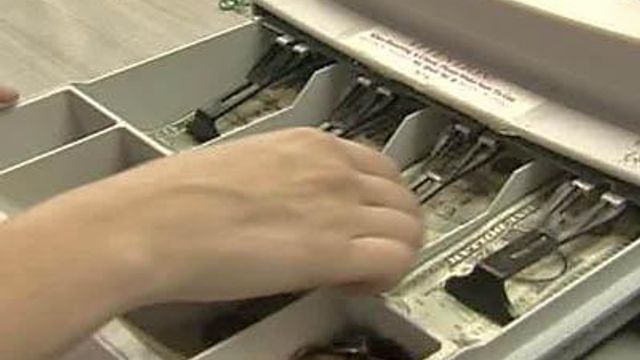N.C. tax code taxing even for experts
Candy and drinks are taxed at different rates, depending on ingredients, and a Cary bakery helped change state law in taxing bread.
Posted — UpdatedLa Farm Bakery pushed for three years before the tax code was amended by the Artisan Bakers Bill this year. The bill, which takes effect in January, exempts small bakeries from paying the 4.75 percent state sales tax and any local taxes on prepared foods.
"There was a lot of confusion as laws along the way were introduced around baked goods," said Missy Vatinet, owner of La Farm Bakery.
Vatinet had been charging customers the local 2 percent sales tax on food since she opened her shop in 1999 until the state Department of Revenue slapped her with a notice of $150,000 in back taxes in 2005. Revenue officials said she should have been charging 7.75 percent in sales tax for prepared food, noting Wake County charges an extra 1 percent sales tax on such items.
The accountants Vatinet hired and various state tax investigators couldn't agree on whether bread and other baked goods from a bakery qualified as prepared foods. The tax code defines prepared foods as anything that is sold hot or heated by the retailer, mixed or combined by the retailer or sold with eating utensils provided by the retailer.
What incensed Vatinet the most was that Department of Revenue officials said the same loaf of bread she had to charge 7.75 percent sales tax on could be sold through a supermarket and be subject to only the 2 percent food tax.
"Why would I want to purchase (a) coffee cake here when I could go to Whole Foods and buy it for 5 percent less sales tax?" she said. "I think that tax code is very difficult."
She's not the only person confused by quirks in the code.
"To ask me if I actually know what is and what's not (taxed), I can't tell you," shopper Carmen Diddley said.
Soft drinks and candy, for example, are charged at different rates, depending on their ingredients.
Candy that includes flour or requires refrigeration, like Twix, Kit Kat and Nestle Crunch, is taxed at the 2 percent rate, while other confections carry that plus the full 4.75 percent state rate and any other local sales taxes.
Soft drinks used to be subject to the full sales tax only if they were carbonated. Now, all drinks that contain sweeteners, including Gatorade, sweetened iced tea and flavored waters, are taxed at the 6.75 percent rate.
"It's 6.75 (percent) tax (or) a 2 percent tax. I have no idea (what's charged on which items)," shopper Gennie White said.
State Rep. Nelson Dollar, R-Wake, said large chunks of North Carolina's tax code need to be fixed.
"Tax code can get very convoluted and very complicated and, frankly, we need to streamline and simplify our tax policy and tax regulations in this state," Dollar said. "Tax policy should be fair. It should be as low as possible to meet the services that (the) state requires, and it should be uniform across a broad area so that one group of businesses is not being penalized over another."
Some lawmakers have called for taxing services as well as products, but Dollar said he's opposed to that change in the code.
"We do not need in this economy to be adding more taxes to hairdressers and other professional services that people buy every day. We certainly don't need in this economy to be raising the number of things that are taxed in the state," he said.
Lawmakers and Department of Revenue officials need to align their priorities, Vatinet said, so small businesses like hers aren't punished. She said she had to put a planned expansion on hold for three years while the baked-goods sales tax issue was resolved.
"I think it's important our other divisions of government also have this same common philosophy that we're looking to create a business-friendly environment to grow our state because there's other states who are (doing so)," she said. "If we don't, these businesses are going to go to other states."
• Credits
Copyright 2024 by Capitol Broadcasting Company. All rights reserved. This material may not be published, broadcast, rewritten or redistributed.





